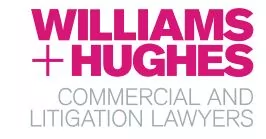In a situation that is not unusual in the commercial retail shop leasing space; particularly with small scale commercial landlords, a tenant has paid the landlord's operating expenses for many years but subsequently realised that perhaps they should have been provided by their landlord with prior estimates, and subsequent audited statements, of those expenses. This might mean the tenant is entitled to a refund of the operating expenses they have paid, or that the landlord cannot sue for operating expenses that were invoiced but are unpaid.
To avoid this risk, it is critical that landlords of a retail shop lease ensure they have given an estimate of operating expenses before the end of the year in which those expenses are invoiced and paid.
The landlord cannot subsequently give an "estimate" of operating expenses after the fact. Once the quantum of those expenses is a known element, it would be artificial and there is no remaining room for a landlord to retrospectively give an estimate. In the absence of a valid estimate of outgoings, the outgoings are not payable.
In the Western Australian Court of Appeal decision of Trimat Holdings Pty Ltd v Investment Club Pty Ltd delivered on 28 April 2020:
- the tenant leased a retail shop for a term of 10 years commencing 1 November 2010;
- the tenant paid its share of the landlord's operating expenses for 6 years before commencing court proceedings in June 2018 seeking to recover these payments; and
- the tenant claimed the lease was a retail shop lease under the Commercial Tenancies (Retails Shops) Agreements Act 1985 (WA), that section 12 of the Act required the landlord to give estimates of operating expenses and operating expenses statements, and that the landlord had never given compliant statements.
In very general terms, the effect of:
- section 12(1)(d)(i) of the Act is that operating expenses are not payable until one month after an estimate of the years' (or part years') expenditure has been given to the tenant; and
- section 12(1)(d)(ii) of the Act is that the landlord must then give a statement of actual operating expenses within 3 months of the end of the landlord's accounting period (for example, the end of the financial year), and if it does not do so, the tenant's obligation to pay operating expenses is suspended during the period of non-compliance.
A defence raised by the landlord was that it could, prior to trial, belatedly comply with section 12 of the Act and thus nullify the tenant's claim. The District Court dealt with as a preliminary issue, finding in the landlord's favour.
The Supreme Court of Appeal took a different view.
In essence, the Court of Appeal determined:
- a statement of expenditure for a year or part of a year in which all expenditure has been incurred and its amount is ascertained would not be an 'annual estimate of expenditure' for the purposes of the Act. The reference to an 'annual estimate of expenditure' is to an assessment of the annual expenditure prospectively anticipated to be incurred in a year but which has not, at least fully, been incurred. It is not a reference to a statement of expenditure in a year which has already been fully incurred and ascertained;
- the landlord cannot neutralise the suspension of payment provided by section 12(1)(d)(i) of the Act by belatedly giving an estimate of expenditure after that expenditure has been fully incurred and ascertained;
- an operating expenses statement can theoretically be given to a tenant more than after 3 months after the end of the accounting period to which it relates. However, that does not help a landlord who has not provided a valid estimate of operating expenses beforehand – the tenant's requirement to pay expenditure will not have arisen if the required estimate has not been given; and further
- to the extent the operating expenses statement relates to expenditure that requires an auditor's statement - as to whether or not the total amount of estimated operating expenses exceeded the total actual expenditure by the landlord – the landlord will not be able to give a compliant operating expenditure statement in the absence of a prior estimate.
Landlords of retail shop leases should check their compliance with section 12 of the Act and, if they have not yet given the tenant an estimate of operating expenses for the year, make haste to now do so before that expenditure has all been incurred and finalised.
The content of this article is intended to provide a general guide to the subject matter. Specialist advice should be sought about your specific circumstances.

